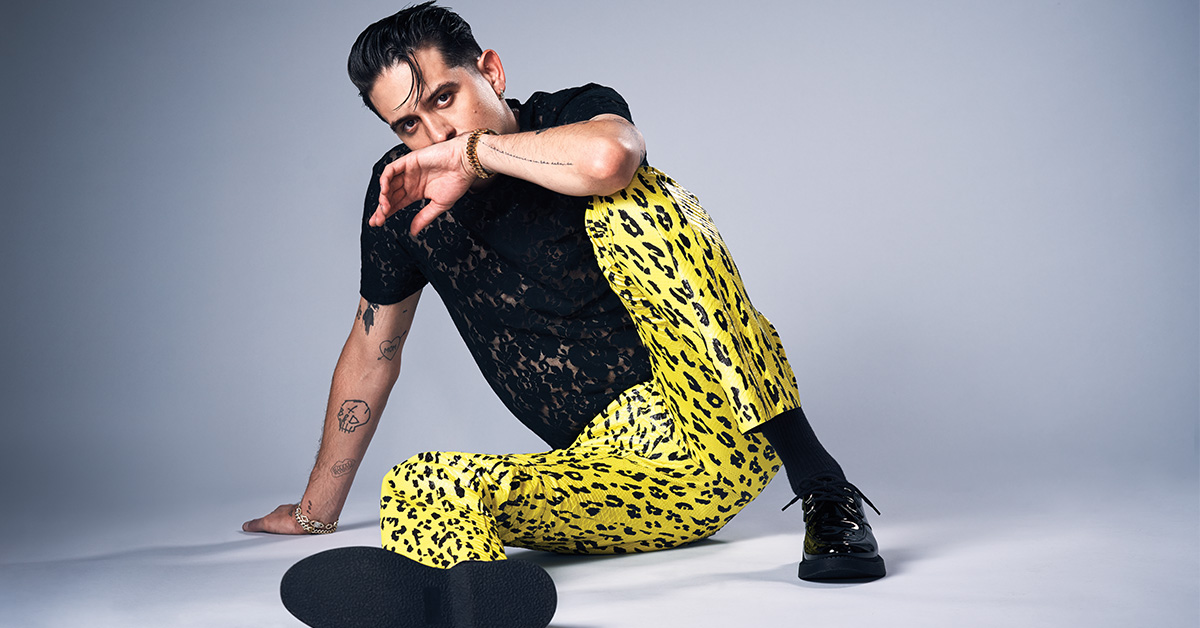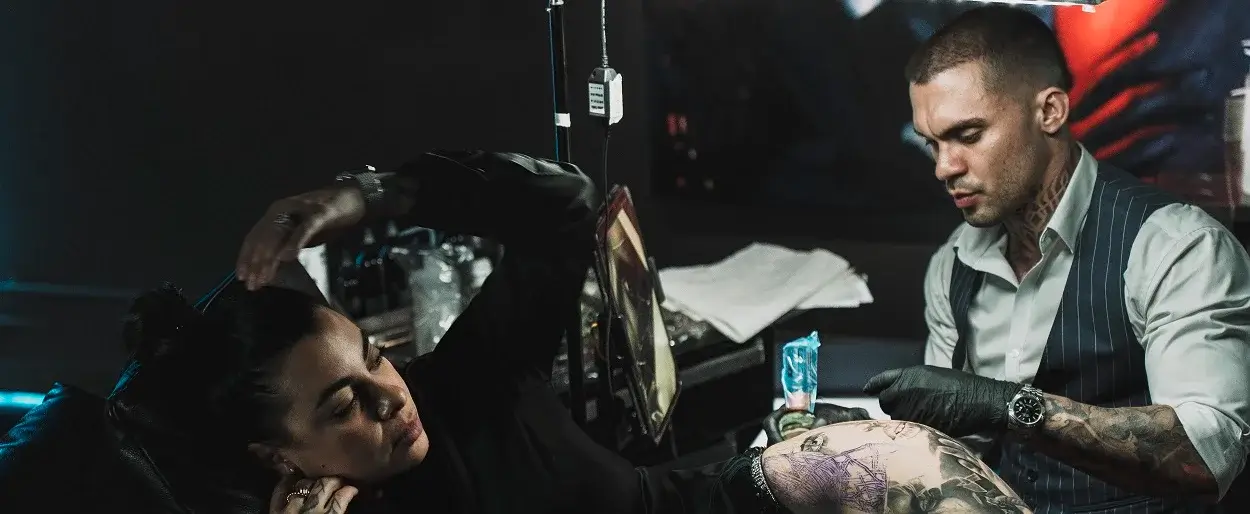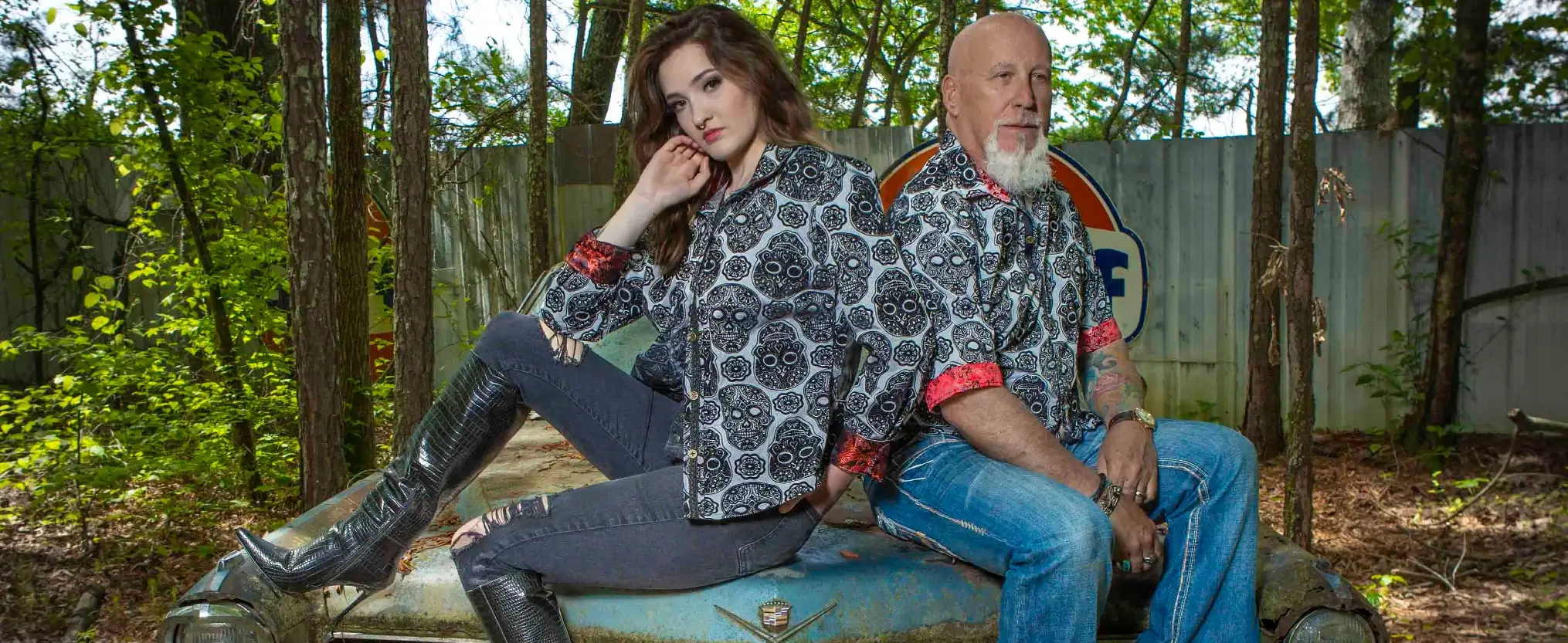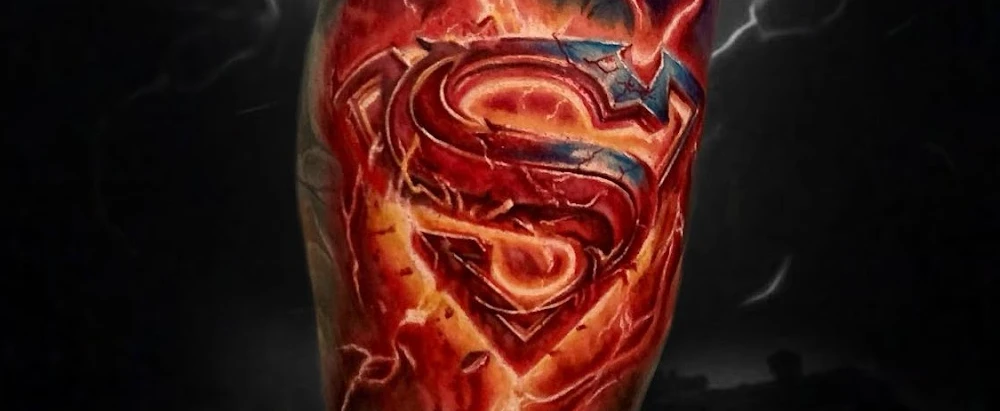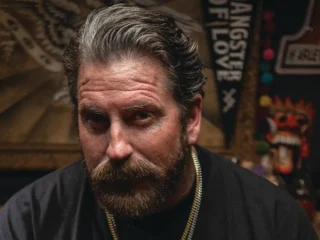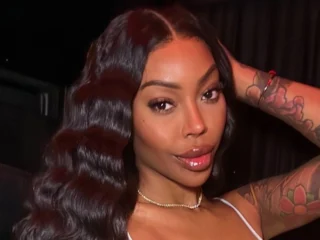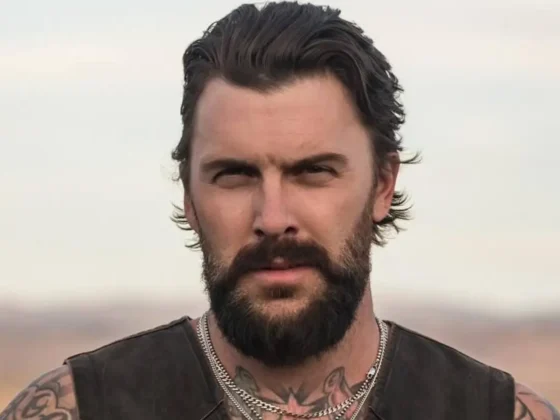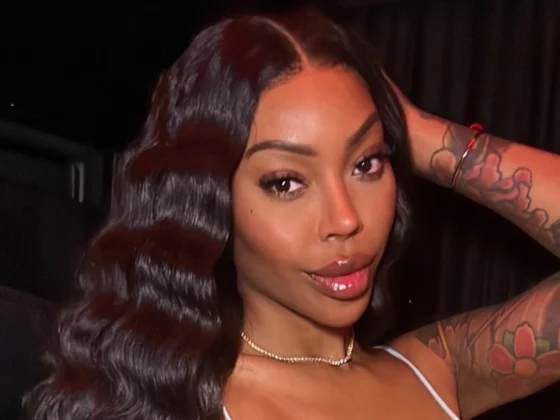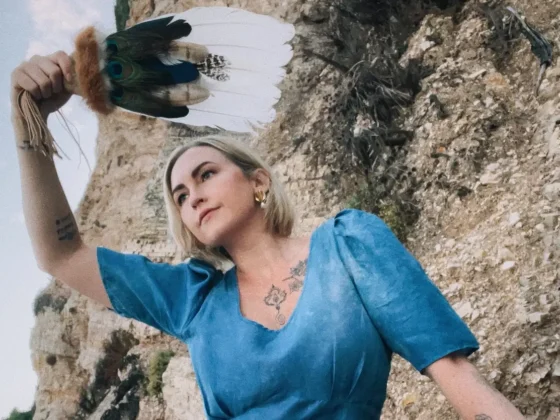Inked Mag Staff
November 19th, 2021
Opportunity Cost
G-Eazy gets deep over a bowl of instant ramen as we discuss his reckonings with fame, his latest album, “These Things Happen Too,” and more.
by christina lee
photos by chad griffith
styling by anastasia walker
grooming by jenny sauce
At first, life at Gerryland—what G-Eazy calls his Hollywood Hills villa, with its reclaimed wood beams—isn’t quite what I imagined. For our Zoom call in October, his trademark slicked-back hair is hidden beneath a black Oakland Athletics cap. And when he instructs a chef outside the frame to top his late lunch with “lots of sesame seeds,” that lunch turns out to be a bowl of instant ramen. His favorite toppings are cayenne pepper, Sriracha, crushed red pepper flakes, black pepper and Tony Chachere’s Original Creole Seasoning. “I’d easily crack an egg in it,” he says, like someone who knew of this trick before it’d be called a “ramen hack.”
But the multi platinum-selling rapper behind “Me, Myself & I,” “Him & I,” and “No Limit” also sits his wicker dining chair in front of a wall-sized graphic ink piece by Los Angeles artist Kai, a friend of his. Kai’s signature 3D stickman, “If,” is buoyed by a heart-shaped balloon with one arm, and tethered to the ground by a bag of money with the other—“torn between love and success,” G-Eazy explains. The piece is instantly recognizable because it’s what G-Eazy has inked on his left rib cage, having mulled over the personal sacrifice he’s made as a public figure throughout his career.

For those who didn’t personally bear witness to his ascent in Oakland, where the artist born Gerald Earl Gillum grew up, G-Eazy’s success story began with his 2014 major label debut “These Things Happen.” That’s when he first figured out how to paint himself as a tragic hero, as a “modern Gatsby chasing Daisy.” Hometown hero E-40 became a collaborator and noted cosign. His self-made success saw dividends the music industry couldn’t ignore, like outselling Phish the first week, no matter how anyone felt about his artistry, rap cred or whiteness.
G-Eazy never set out to revisit that time, much less by way of an album sequel like “These Things Happen Too,” released in September. “I cringe when I listen to the first one,” he says. “I have a very hard time listening to any of my music once it’s released. I feel like I’m always pushing myself to get better, in every way that is technical, because that is all you can really control.” But, as someone who recently got a yin-yang symbol tattooed on his elbow, he can’t help but fixate on life’s dualities. Like being torn between love and success. Or how the consequences of fame can sound more glamorous than they actually are.
“From the Bay to the universe” became his personal slogan back in 2014. “[‘These Things Happen Too’] is the spaceship landing back home,” G-Eazy says. “A little banged up and bruised, but with stories to tell.”
***
On the surface, “Everything is Everything” featuring Goody Grace—the first song G-Eazy recorded for his new album—is a story we’ve heard from him before, about how fame sabotages the relationships he should keep close. But the lines “Let’s get lost, you took to heart the words I sang you / I guess heights like these ain’t got the same view” are a throwback to 2014, when G-Eazy featured Devon Baldwin—the eventual singer behind “Heights Like These”—on the platinum-selling “Let’s Get Lost.” (He and Baldwin have dated before, though they still collaborate to this day, including on “These Things Happen Too.”) “That’s where I started to lay out the concept of this reflective journey I wanted to build with this album,” he says.
That journey wasn’t made completely obvious when G-Eazy kicked off this album era. In spring 2020, he released “Still Be Friends,” a bawdy party rap song featuring Tory Lanez and Tyga where he boasts, “Playboy mansion? I’m home.” The music video—which G-Eazy says was the last to obtain a LA film permit before the pandemic—picks up from where “BET Uncut” left off, in more ways than one. While both versions feature porn stars like Nia Nacci and Mia Melano, Pornhub hosts an uncensored version with 3 million views, on top of the clean version’s 37 million on YouTube.
At the time, G-Eazy played off this simultaneous release as a savvy business move, citing a COVID-19 spike in traffic to adult sites “with everyone having to stay inside.” Behind the scenes, though, he regards “Still Be Friends” as an artifact of the before times.
“At that time, I still had plans to release the album, because a version of it was pretty much done and ready to go,” G-Eazy says, “but when all of a sudden the world shuts down, you reevaluate. You slow down your plans to release an album because you don’t know what world you’re releasing it to. The thing about ‘Still Be Friends’ is that it’s a club song, but if there are no clubs for a song like that to live in… its chances of succeeding are different.”
G-Eazy has to remind himself of what lockdown ultimately afforded him. First, he calls the pandemic a period of “forced reflection,” before he backtracks slightly. “COVID offered a lot of time for self-reflection. The deeper I got into the process of this album, you just start to uncover these layers and take a look at the decisions you’ve made throughout your career and life, think about some of the consequences.”

***
“These Things Happen Too” could easily have been a victory lap, nothing but fan service. The new album boasts a trailer narrated by Marshawn Lynch, who G-Eazy is on a texting basis with after not being able to afford Oakland Raiders tickets growing up. He circles back with artists like one-time tourmate Lil Wayne in “When You’re Gone” and E-40 in “Now & Later,” except now he sounds more like a rap industry peer than someone who needs the cosign. In “Speed” he interpolates Cake’s 1996 song “The Distance,” and it’s better than it has any right to be. Yes, in this Instagram age, there is a “Tumblr Girls” sequel.
But the battle scars are what make the album compelling. Fifth track “Wanna Be Myself” offers a before-after image: “I started this shit 10 years ago, it was just me and my manager / on the road, doin’ any shows, we was fillin’ up this calendar / but Matty’s married now and it’s a whole ’nother chapter / while I’m in Gerryland, I’m still here wildin’ as a bachelor.”
Compared to the anonymous sex that typically animates his music, “These Things Happen Too” gets specific. He calls himself a cheater multiple times, which stands out, if only because of the accusation ex-partner Halsey had written on the walls of their 2019 “Saturday Night Live” performance. In his “Breakdown” video, he and featured artist Demi Lovato literally face the headlines they’ve made, over their dating lives, past arrests, drug convictions and addictions.
The album’s biggest reckonings with fame are addressed to the late Mac Miller. The second verse of “Time” is a letter to the fellow rapper dated seven months after his 2018 death of an accidental overdose. He confesses how he used to envy Miller’s career: “See us two white boys rappin’, felt like they would always compare us / except you’d sell out shows across the world, from Oakland to Paris.”
“There’s a bit of jealousy and competitiveness that comes naturally in our industry,” G-Eazy says. “Most of us are alpha types. We live lives that revolve around us; staffs of people work behind the scenes tirelessly to lift you higher. We’re all driven, and we know how rare and fickle success is in this industry. But he was someone who was there for me as a friend.”

As sweet as that sentiment is, it’s also an understatement, compared to what he raps. “What I was going through with Ash, you went through with Ariana / and you would check in on me daily, help me deal with tha drama / come to think of it, we talked every day last summer / You were like a big brother, crazy that you was younger.” As a listener, he trusts that you can Google the rest: how they both dated pop stars who became their muses, before their breakups, too, became public.
I keep finding different ways to ask how G-Eazy armed himself to get confessional—to face the music, to name the names.
“That’s reality. That’s not fiction,” I say of the “Breakdown” video.
“But that’s a reality we can’t hide,” he says.
“You didn’t have to be as straightforward in ‘Breakdown,’ or in ‘Time,’” I followed up.
“I think the parallels between Demi and I offered an opportunity to just be bluntly honest and vulnerable, and that’s sometimes a very important and powerful thing to do in music.”
Each time, G-Eazy said it was simply a matter of artistry, which I’m just now realizing is an answer in itself: “Most of us share very curated versions of our lives on social media. I think I’m better than that. I’m capable of doing more than just sharing a pretty picture and what I would like the world to see me as.”

***
In “Wanna Be Myself,” G-Eazy remembers a question someone (he won’t say who) asked him two years ago: “What do you have outside of music that makes you happy?” By “outside of music” the questioner clearly meant “outside of work,” which may be easy to consider for people who simply work to live, versus those who live to work.
Hunching over his now-empty bowl of ramen, G-Eazy sounds sheepish as he remembers turning this question around in his head, feeling pressured to come up with an answer, like when a well-meaning relative asks when you plan to start a family.
“When you work as hard at something that’s your job as I do in music, and you love it as much as I do with music, it becomes intrinsically connected to your identity,” he says. “It’s the love of your life, it’s your profession, it’s your obsession. It’s the bane of your existence when it’s not going well. And it’s the best drug the world can ever offer you when it’s going great. There’s been times when I’ve had to ask myself, ‘Yo, do you have any hobbies, or anything else you give a portion of your life to that’s significant, that’s not music?’ Because that’s fundamentally healthy, I think, to have a life of balance. But it’s something that I’m working on.”
Yet, as indecisive as he sounds in person, “These Things Happen Too” ends on a forceful, defensive note. To a throwback boombap beat in “Gerald,” featuring Anthony Hamilton, G-Eazy addresses everyone who either takes his success for granted or wants to chime in on what they’d do differently: “Every stop, hoppin’ on and off the bandwagon / hate the way I’m living, criticize my actions / bought moms a house, and the town was hella proud of it / booked the next day, I did some shit you got a problem with.”
No matter how often he comes across as a tortured soul, his mind is made up. He’d rather be torn between love and success than to not have succeeded at all.

CLICK HERE TO BUY YOUR COPY!
Editor's Picks
Bridging Classical Art and Modern Tattooing
Esteban Rodriguez brings the discipline of classical fine art to the living canvas of skin, creating hyper-realistic tattoos that merge technical mastery with emotional depth.
Show Your Ink Fashions Brings Custom Style to Tattoo Culture
Show Your Ink Fashions creates custom shirts designed to showcase your tattoos as wearable art, blending fashion with personal expression.
The Ultimate “Superman” Tattoo Roundup: Just in Time for Superman’s Return to Screens
With Superman’s big return to theaters, fans are revisiting some of the most iconic ink inspired by the Man of Steel.

